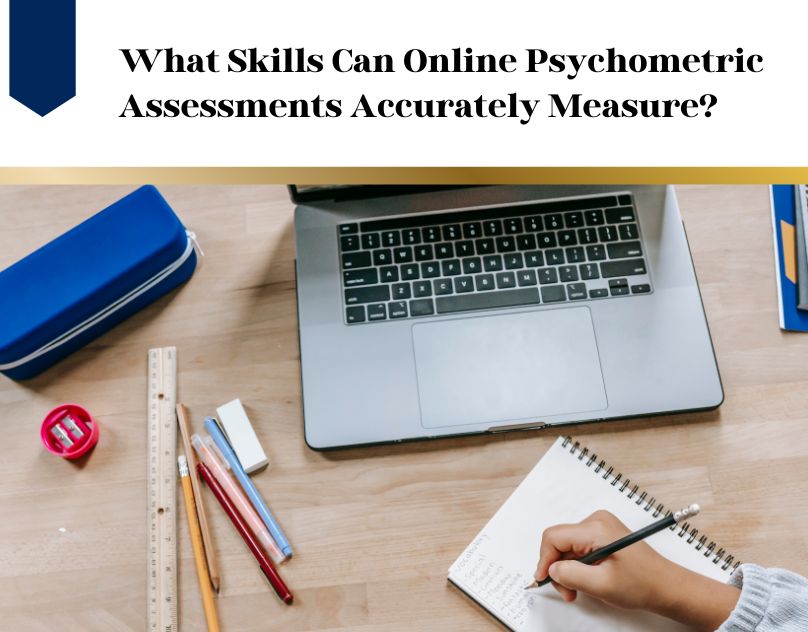What Skills Can Online Psychometric Assessments Accurately Measure?

In today's fast-paced work environment, professionals and students in India are constantly seeking ways to stay ahead. One such evolving tool is the online psychometric assessment—a scientifically designed method to evaluate an individual’s cognitive, emotional, and behavioral attributes. From hiring processes in corporate HR departments to career guidance for students, these assessments are rapidly becoming mainstream. Their convenience, objectivity, and data-backed results make them appealing in a country where career competition is high and talent evaluation is increasingly digitized.
As Indian organizations shift toward a more skill-based evaluation framework, understanding what these assessments truly measure becomes essential. Are they accurate? Do they account for emotional intelligence? And can online emotional intelligence training platforms bridge the gaps for holistic development? Let’s explore.
Key Skills Measured by Online Psychometric Assessments
Online psychometric assessment offer insights into a wide range of human capabilities. Here's a breakdown of the most commonly measured skill domains:
1. Cognitive Abilities
These are often referred to as "intellectual capabilities" and include logical reasoning, verbal ability, numerical aptitude, and abstract thinking. For instance, aptitude tests commonly used in campus placements assess how quickly and accurately a person can process information and solve problems. This is especially useful in roles that require analytical thinking and decision-making.
2. Personality Traits
Many platforms assess personality dimensions based on well-established models like the Big Five (Openness, Conscientiousness, Extraversion, Agreeableness, Neuroticism). This helps employers understand a candidate’s natural inclinations, teamwork potential, and leadership style. Notably, such assessments are now widely used in both corporate hiring and career counseling to ensure cultural fit and long-term retention.
3. Behavioral Tendencies
These assessments gauge how individuals are likely to behave in workplace scenarios—whether they are risk-takers, detail-oriented, empathetic, or assertive. This data is invaluable in shaping team roles, resolving conflicts, and creating leadership pipelines.
4. Emotional Intelligence
While traditionally hard to measure, newer assessments now attempt to evaluate emotional awareness, self-regulation, empathy, and interpersonal effectiveness. These are essential for people-centric roles such as customer service, HR, teaching, and management. As a result, emotional intelligence is fast becoming a central element in psychometric profiling.
Accuracy and Limitations in the Indian Context
While these assessments offer a structured approach to talent evaluation, they are not without limitations. Accuracy depends heavily on the quality of test design, the validity of questions, and the context in which they are used.
Cultural relevance is a notable concern in India. Many psychometric tools are developed based on Western norms and may not fully capture Indian behavioral nuances. For instance, communication styles, authority dynamics, and group behavior can vary significantly across regions and communities in India.
Biases may also creep in when assessments are taken under stress or if candidates try to "game" the system. Consequently, HR professionals and counselors must be trained to interpret results alongside interviews or simulations, rather than relying solely on scores.
Furthermore, psychometric tools are not a one-size-fits-all solution. They are best used in combination with observation and human judgment for balanced decisions.
How Emotional Intelligence Training Complements Psychometric Tests
While psychometric assessments identify emotional intelligence levels, they don’t always offer solutions for improvement. This is where an online emotional intelligence training platform can play a transformative role.
These platforms are designed to build self-awareness, empathy, stress management, and communication skills—all of which are critical in both personal and professional life. Moreover, the accessibility of online modules allows learners across India, including Tier 2 and Tier 3 cities, to benefit from structured emotional development.
For instance, after an assessment highlights low stress tolerance or poor conflict resolution skills, targeted training can help individuals improve these specific areas. Therefore, pairing psychometric results with ongoing emotional intelligence training leads to holistic development and long-term success.
On the other hand, teams that collectively undergo such training are likely to demonstrate better collaboration, fewer interpersonal conflicts, and higher productivity.
Conclusion
Ultimately, online psychometric assessments are powerful tools that help decode human potential—measuring everything from intelligence to personality and emotional aptitude. While they provide structured insights, their true value lies in how the results are interpreted and acted upon.
In the Indian context, their popularity continues to rise, especially when integrated with online emotional intelligence training platforms that guide self-improvement and interpersonal growth. When used thoughtfully, these tools not only improve hiring and academic decisions but also empower individuals to thrive in an increasingly dynamic world.
Ready to unlock your potential? Combine data-driven assessments with emotional intelligence training for a balanced, fulfilling career path.
